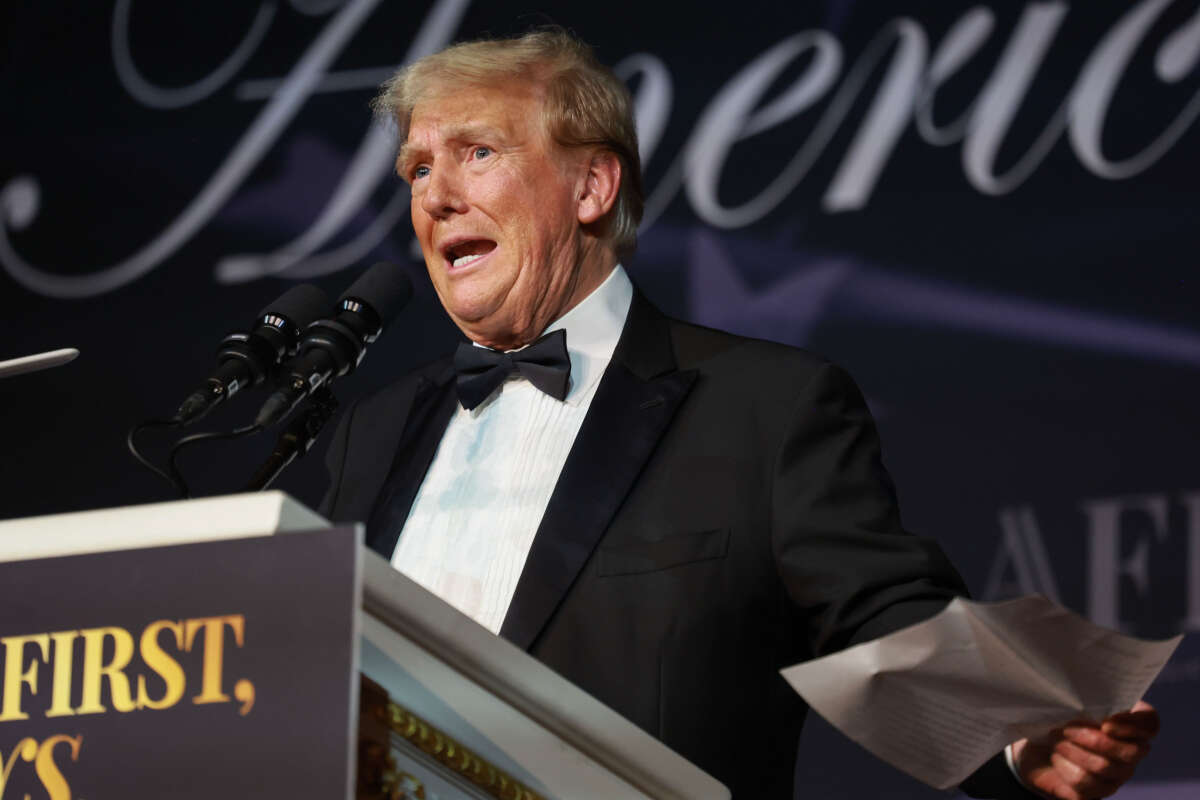Truthout is a vital news source and a living history of political struggle. If you think our work is valuable, support us with a donation of any size.
In a Truth Social post earlier this week, president-elect Donald Trump indicated a misunderstanding of how he was elected president.
Supporters of Trump suggested his post was an attempt to troll Democrats — a purposeful action to deliberately upset them — while his critics said the post may be an indicator of him being cognitively unfit to serve as president.
In the post, Trump suggested that candidates for president must win both the Electoral College and the popular vote in order to obtain the office, when in fact it’s just the Electoral College that matters. He also claimed that Democrats were trying to upend the process because he had won the popular vote this year — the first time he’s been able to do so in his three runs for president.
“The Democrats are fighting hard to get rid of the Popular Vote in future Elections. They want all future Presidential Elections to be based exclusively on the Electoral College!” Trump complained in his post.
Whether he was trolling people or not, it is Trump, not Democrats, who has changed his views on how presidents should be elected.
In 2012, when it appeared that former President Barack Obama was set to win the election through the Electoral College but not the popular vote, Trump commented on Twitter that the “electoral college is a disaster for democracy.” (Obama would go on to win both the Electoral College and the popular vote in that year’s race.)
In 2016, when Trump won the Electoral College but not the popular vote against then-Democratic candidate for president Hillary Clinton, he appeared, at first, to hold a consistent view of the mechanism for selecting presidents, stating in an interview days after his win that he wouldn’t “change [his] mind just because [he] won” the contest.
“I would rather see it where you went with simple votes. You know, you get 100 million votes and somebody else gets 90 million votes and you win,” Trump said.
However, shortly after that interview, Trump did a complete 180, stating that it was more important to win the Electoral College. He spent the next four years defending the Electoral College and rejecting the idea that it should be abolished in favor of a popular vote model — a sentiment he likely adopted because he recognized it was an easier way for him to win election again in the future.
Since that time — at least until his post this week — Trump has held the same view about the supposed superiority of the Electoral College, despite its clear anti-democratic and racist flaws.
Polling shows that voters have a strong desire to get rid of the Electoral College in favor of a popular vote model. According to a Pew Research Center survey published in September, 63 percent of U.S. voters would like the popular vote across the entirety of the country to determine who becomes the president, while a meager 35 percent of voters favor keeping the Electoral College in place.
Media that fights fascism
Truthout is funded almost entirely by readers — that’s why we can speak truth to power and cut against the mainstream narrative. But independent journalists at Truthout face mounting political repression under Trump.
We rely on your support to survive McCarthyist censorship. Please make a tax-deductible one-time or monthly donation.
